I understand nothing
Everything changed three years ago. At 6:30 am on February 24th, the phone broke the silence. Vitya called; he is like a son to Mirjam and me. His voice was shaky on the line.
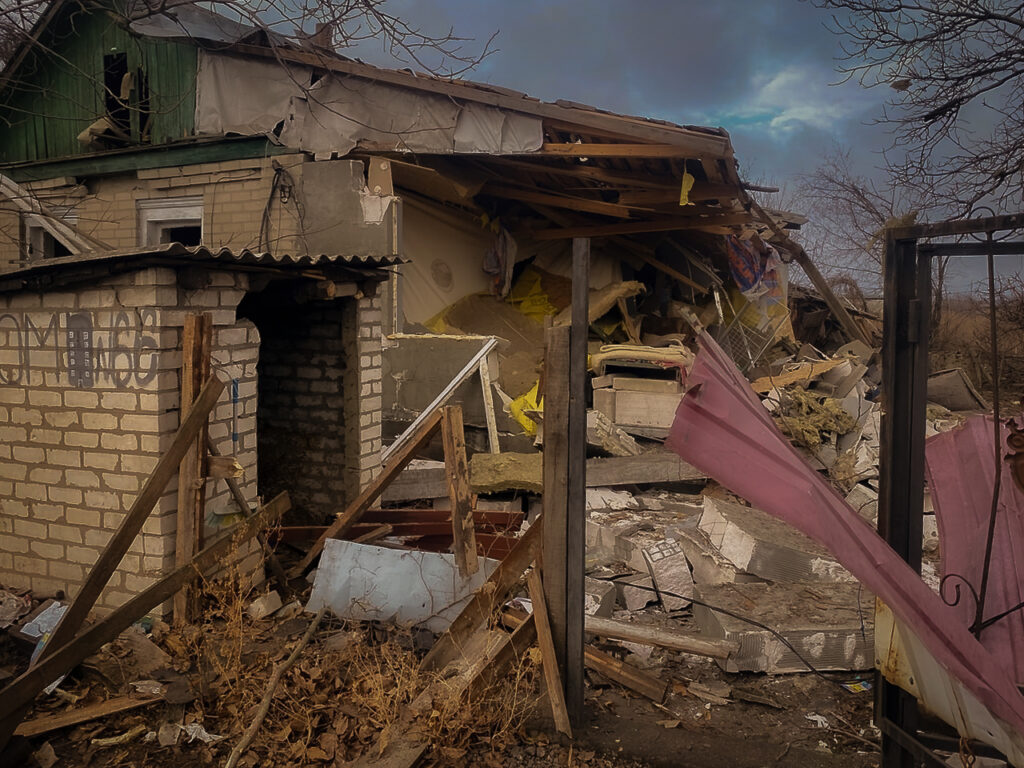
”Boas, bombs are falling here. I understand nothing.”
His words drilled into me. I, too, understood nothing. It was hard to think straight at that early hour. But one thing was certain – something horrible had happened.
I remembered an international conference from years back, where Russian leaders expressed their dissatisfaction with the present world order. It seemed like empty words then, just a diplomatic game. I know better now.
The full-scale invasion to Ukraine had started. Since that day, time has lost its ordinary rhythm. Three years have gone, but bombs are still falling. Cities turn to rubble, life quenches in the twinkling of the eye, an entire nation is fighting for its freedom, and the world just watches.
I can still hear Vitya’s words in my ears: ”I understand nothing.”
Boas Adolphi, Ambassador
Denial, realization, acceptance…
These words describe my three years of war. We live in the 21st century, and war is something distant that belongs to history books…
At 03:40 am on Thursday the 24th of February 2022, Russia started its full invasion of Ukraine. The date is known to the world and the pages of new history.
In the first year of the war, we listened to the news constantly. It was hard to believe it was all true. Then we remained without electricity and communications. We knew the enemy was very near when we heard the noises of war around us. Luckily, my village was saved.
My family remained at home all the time of the occupation, as there was no way to escape. The whole country being in the same situation, it is difficult to believe that peace can prevail somewhere.
The enemy army is no longer in our village, but this can change any day. The air raid alert sounds almost daily and every night, and the Iranian Shaheed drones fly over our villages. We can sometimes see them when we look out the window.
Before my morning cup of coffee, I check the news and call my relatives to ask how they are doing.
It is tough to stay in Ukraine and to live through the war, but it is our own choice. Each and every one of us has relatives and acquaintances who are defending Ukraine, who are injured by the war, who lost their homes and had to find a new place to live. The war touches everyone…
What helps us live during the war? Work – to be able to serve in our own places. Also the support that bridges thousands of miles to give us hope.
Katya O., Friend’s House hostess and Sunday school assistant
A dream of peace
Three years have gone since russia started its full invasion of Ukraine. But it seems like yesterday. Our village was occupied all March 2022.
The roads to our village were blocked by launching devices. We saw missiles rising from them toward Kyiv. Endless rows of russian military vehicles kept moving in the direction of Kyiv.
We had no electricity and no connections out. We could not imagine the atrocities the russians did in Bucha, Irpin, Khostomel… It gives me the creeps to think this could have taken place in our village as well. But thank God, the Ukrainian troops drove the enemy away from the Kyiv region.
We were relieved, but our thoughts are with Eastern Ukraine: Kharkov and Sumy regions, Kherson, Mikolaiv, Chernigiv region. How are our fellow Ukrainians managing there under the daily strikes?
We can only dream of peaceful days in this third year of war. Drones and missiles fly over us every day and especially at night. Every day, we hear them roar in the sky. When they are shot down, we wonder where the rubble falls. Directly on a house in the village, or somewhere else? Best if they end up in the fields outside the village.
Everyone realizes that the war must end. That mothers will see their sons alive, girls will meet their fiancés and children will see their fathers again. But how many young lives have flown away like the cranes in the sky?
Why can’t all people live in peace? Why does brother attack brother? I am deeply grateful to all who defend our country and help people in these difficult times. Every woman wants our children and grandchildren to live in peace and harmony. They should never hear the explosions of war. When will this happen? God only knows…
Raisa Mikolaivna, teacher in Friend’s House
When the invasion started
One day before the Russian invasion, all Ukraine was tense with anticipation. The western intelligence services warned about Russian aggression. Governments moved their embassies away from Kyiv and told their citizens to leave Ukraine. Our government tried to calm us down. President Zelenskyi said everything was under control and we should be preparing for the spring.
At four am on February 24th, I heard the first explosions, as missiles hit military targets near Kyiv. I knew it immediately – Russian president Putin had started what he had threatened to do.
My emotions were intense – anger, rage and hatred to the so-called big brother. The events escalated quickly. In four days already, armoured vehicles appeared on our roads. They occupied villages and advanced toward Kyiv.
The villages of Pisky and Stara Basan were cut off. The enemy built road blocks, and you could only escape along field roads. We kept contact with many families our organization had helped. We organized evacuations and support for families who were able to leave for Sweden.
Occupation forces entered Stara Basan. They broke the doors and windows of shops; they robbed the food, alcohol and household appliances. They searched for men and arms in the streets.
18 children in the boarding school – part of them orphans – lived in the basement with their teachers, while the enemy soldiers settled in their dormitory. They brought their artillery nearby and used it against the Ukrainian troops. Many men were taken prisoner. Two of them were shot, while the others managed to flee.
Eight people died in the village during the month of occupation. They were buried in the gardens, as we had no access to the churchyard.
The Russians retreated from the Kyiv region through our village on the last days of March. It was a frightening time. More than a thousand military vehicles drove through the village for two and a half days. They shot randomly at the houses. A total of 18 homes burned and dozens of houses were damaged. Many inhabitants died.
We survived mainly with our own food reserves. Nearly everyone had grown vegetables. We baked bread. Quite often, I cooked plain potatoes on open fire. On March 27th, my family managed to flee through the fields to Kyiv and from there to Sweden.
Viktor Pavlovich, local president
Values in life
Ukraine has been at war since 2014. But we really felt it when the full-scale invasion started on 24.2.2024. Before that date, I had just seen on TV and heard in other people’s stories what happened in the russian-occupied parts of my country.
The war has changed many of us, including me. I started to value simple things that were not even significant to me before the war. I started to value life more. Although sometimes I wish I could die and escape seeing all the terrible things. The deaths of children and adults. The destruction of cities and villages. The devastation of Ukraine.
But there are good things as well. There are those who support and help us: it’s you! You who prayed for us during the occupation. You who are supporting our families with gifts, clothes and other things. I want to thank you all. You are fantastic!
And I want to ask you to continue:
”Do not withhold good from those to whom it is due, when it is in your power to do it..” – Proverbs 3:27
The war is awful and disgusting. It destroys everything. I am hoping to God that the war ends with our victory and everything will be good again. Then we can talk not only about what was before the war, but also about what comes after the war.
Julia, bookkeeper – secretary
Life before and after
Three years have passed. But I remember our life under occupation like yesterday; all emotions are still alive. It was so hard to accept the truth – that our ”neighbour” really wanted to wipe us away from the earth.
It was such a short time ago that we put a warning to the occupants at the gate: “Here are children”. The days without electricity seemed endless, as everything depended on electricity at home: heating, running water, cooking.
And the constant worry about my son who was studying in the military academy. It almost broke my head when I imagined that the 16-year-old should face the occupying troops with a machine gun.
But I trust that God loves us. He heard our prayers and the prayers of all our friends around the world. Although the neighbouring villages were also occupied, we tried to keep contact with the families that our organization helped.
I remember how Oksana’s daughter Tanya and her husband fled through the fields at night without any light; they defied the danger, because Tanya was about to give birth. How frightening.
Families lived in horror, as they could not go out of their doors: the enemy kept them at gunpoint. I remember my thoughts when I wanted to help the families who lacked food: If I had a drone, I could hang food packages on it and fly it to the neighbouring village. Unfortunately, there was no such super power.
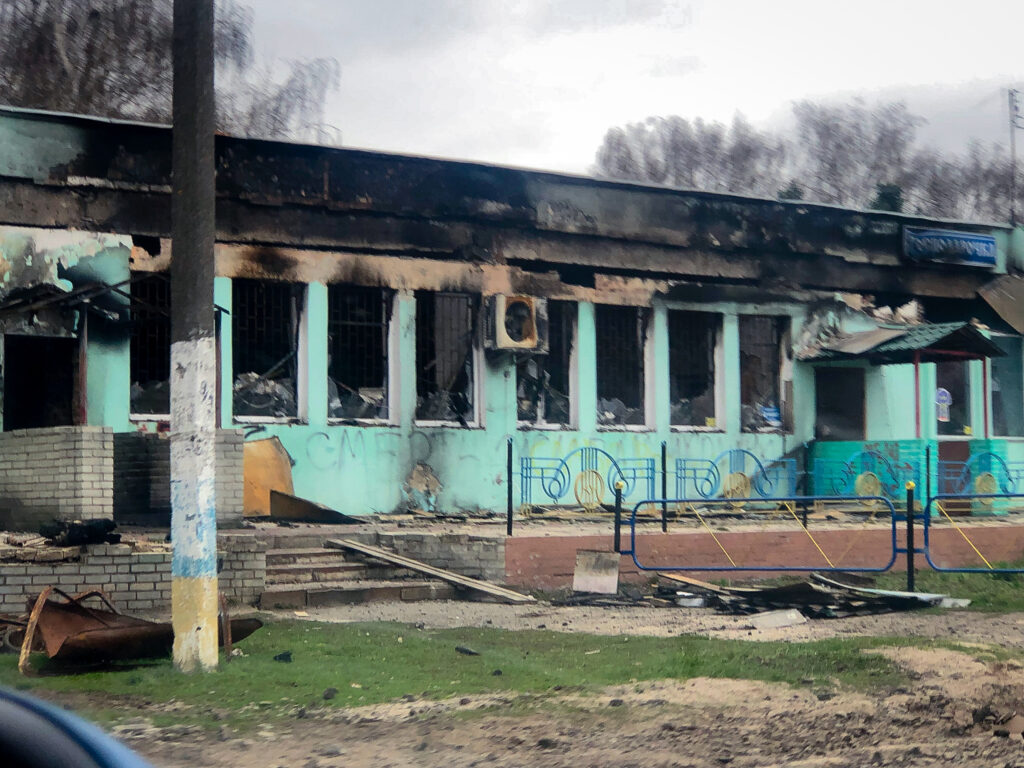
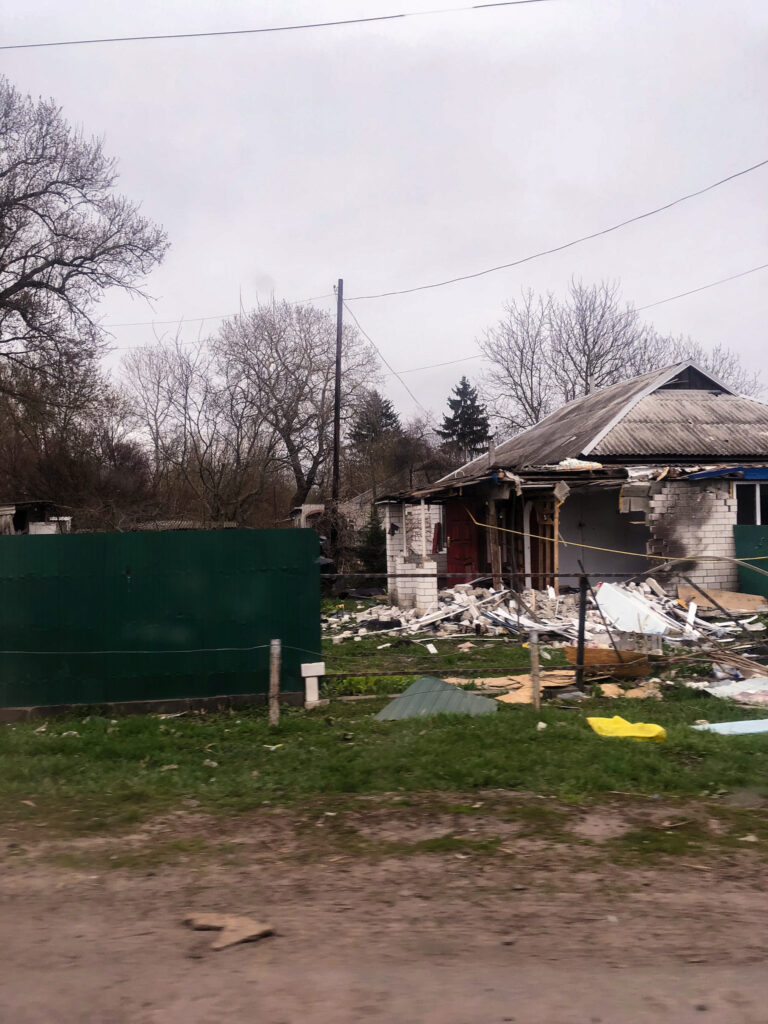
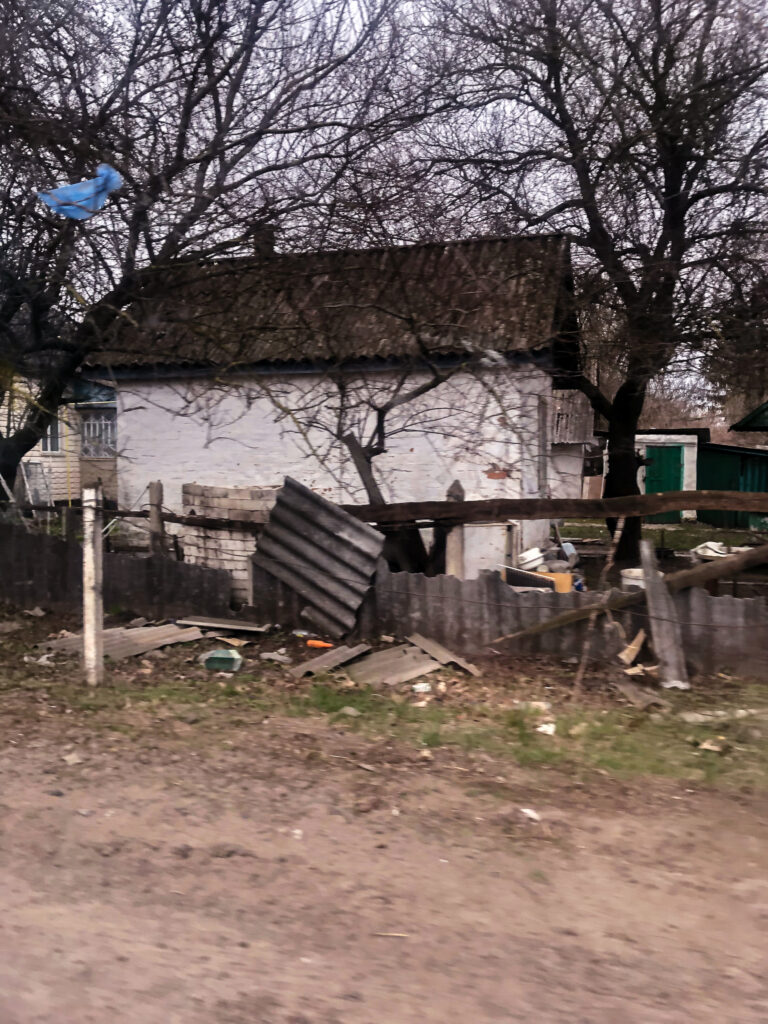
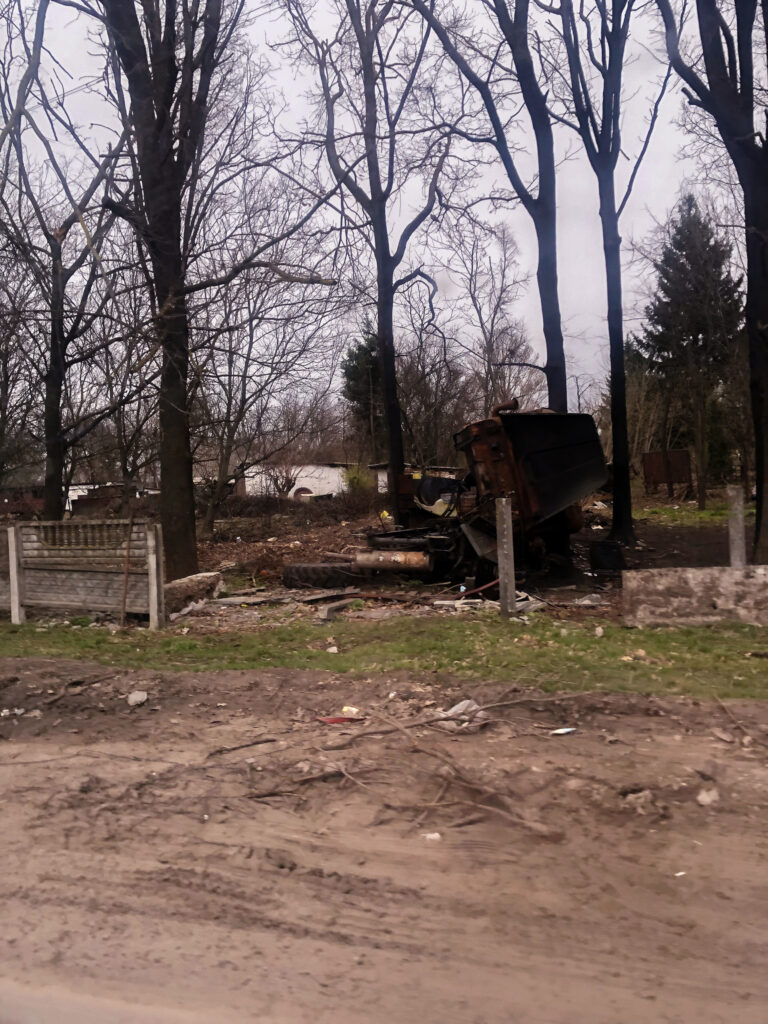
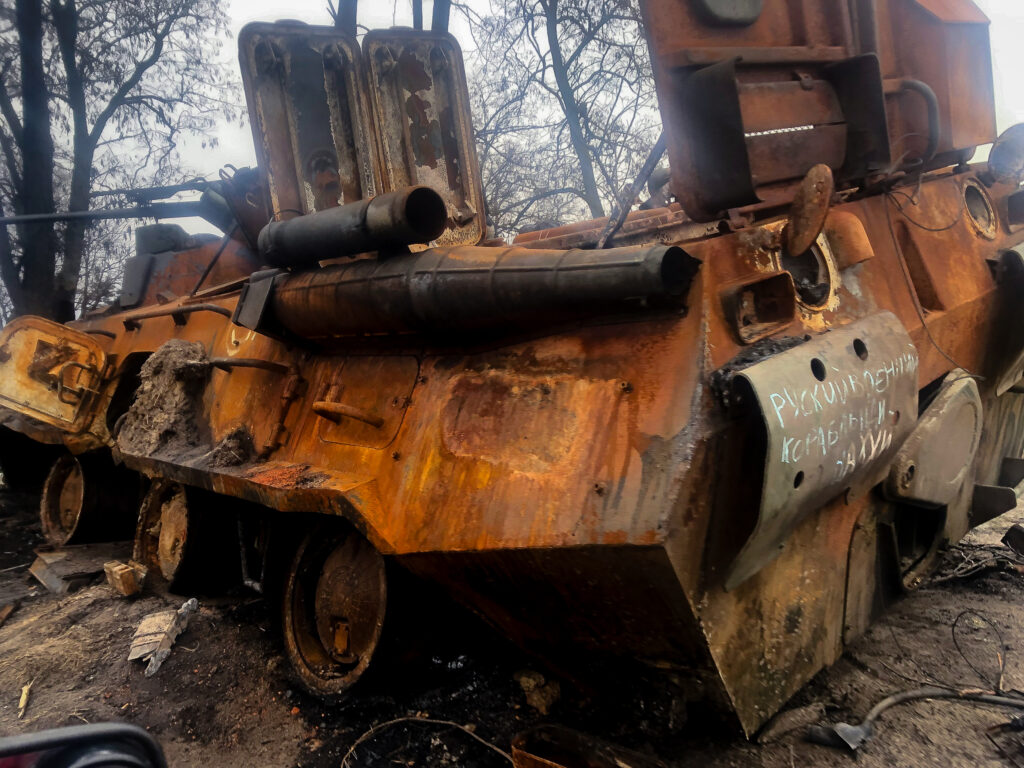
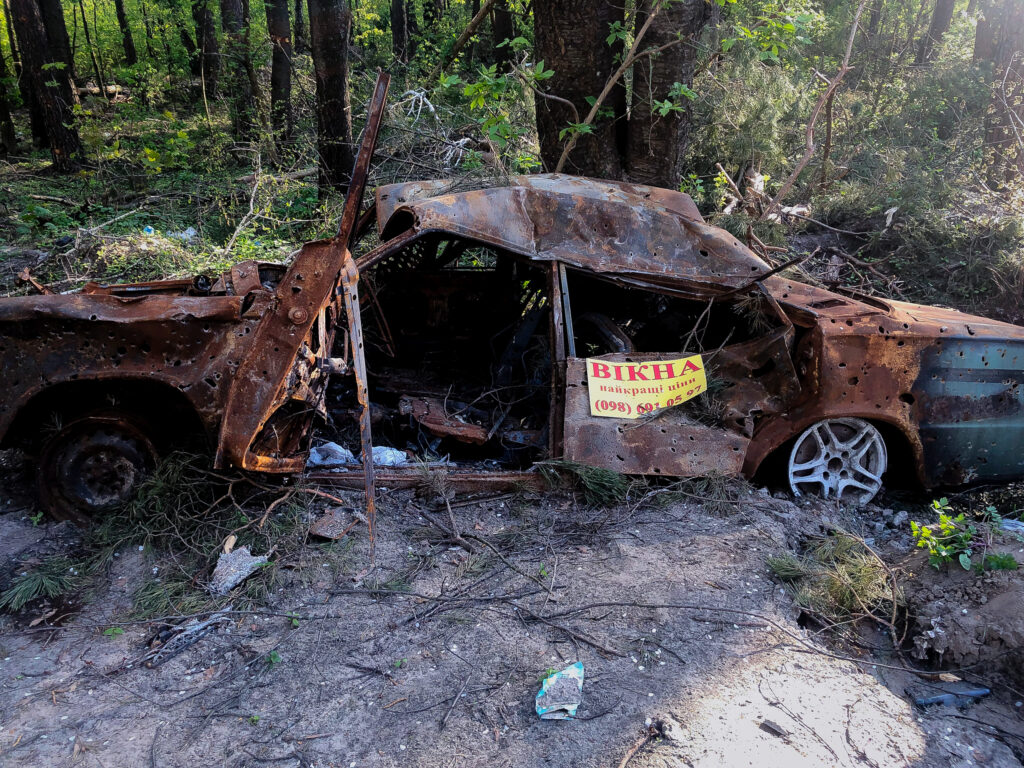
These photos were taken on April 14th 2022. Driving through the villages, I saw gloomy sights. I could not even imagine what the people had been through. Destroyed homes, school, petrol station, culture hall, shop where I had bought car supplies – and, above all, destroyed human lives. Life is divided between before and after.
Katerina, aid programme coordinator in Pisky
Between past and present
live between past and present, not knowing what lies ahead. This has been true for three years now. I came to Sweden with my children three years ago. It is safe here, and I am grateful for that.
But as hard as I try, a strange land is a strange land, and we remain strangers. We are used to the new language, the new food, the new rhythm of life. But our hearts are at home in Ukraine.
What is most difficult is to see how the war has changed the children. They have lost their contact with Ukraine – their schools, their friends, their everyday lives. They have it tough here. They try, but it is no easy matter to find your place in a new country.
I can see their bewilderment and their pain. It is difficult for them to make plans. And it is difficult for me to explain why all of this has happened and why we are living between the past and the present, not knowing what lies ahead.
Every day, I think of returning home. But the thought is as frightening as the insecurity here. Ukraine is no longer the country it was before the war. Laws are not observed, corruption prevails, life is complicated and unpredictable.
I wonder if I will be able to build a new life there, to provide stability and a future for my children? Still, I dream of returning.
I live in the hope that returning becomes possible, that Ukraine stands strong and we have a real peace, not just a signed piece of paper. Then we can return home. But will it be the home we remember?
Tanya Verozub, aid coordinator in Eskilstuna
We’re alive
Three years of war. Three years of discussions starting with ”Are you alright?” and ending with ”Talk with you tomorrow!” If tomorrow comes. Our team is carrying on in their mission in Ukraine it the midst of the war.
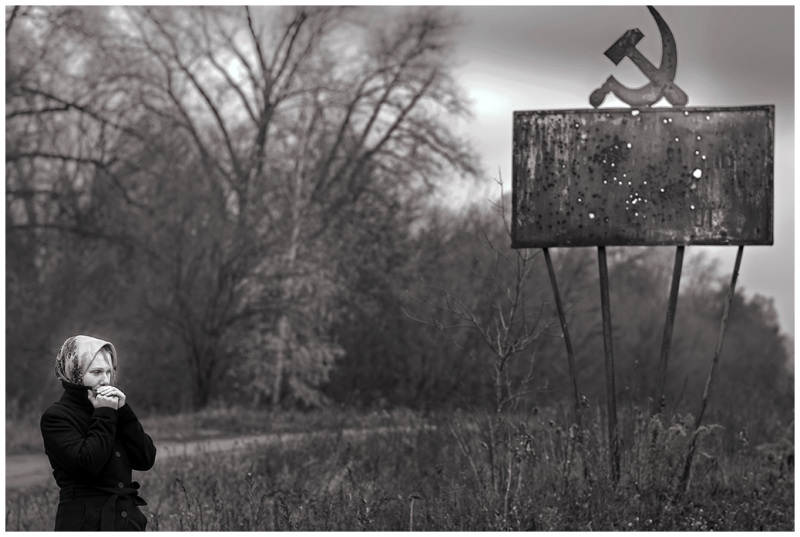
This photo, which I took in 2014, has gained a deeper meaning. I return to an old yet prevailing theme: we are living between history and the future
Life before the war. Life during the war. Not yet life after the war. All the witnesses. Basements. Shootings. Fear. Coldness. Mothers who write contact info on the backs of their children just in case. But also the warmth. Caring. A hand that reaches out when everything is shattered.
Life goes on. Bread is baked. People marry. Children are born. There is life in the midst of death. The brightest light is the resilience, the unity. Not just in the battle field, but also in the everyday life. People refusing to give in. People helping each other. People managing to say ”Good morning, we’re alive!” and meaning it. We’re alive.
As Finnish representative in the negotiations with Soviet Union, J. K. Paasikivi travelled to Moscow in the autumn of 1939 (before the Winter War). A crowd gathered at the railway station to see him of, and they started to sing a hymn:
A mighty Fortress is our God, a bulwark never failing. Our helper He amid the flood of mortal ills prevailing.
Now in February 2025 – if you have the will and the way, please support the work of Children’s Embassy and help Ukrainian children in the war and on the run.
Mirjam Adolphi, international coordinator
